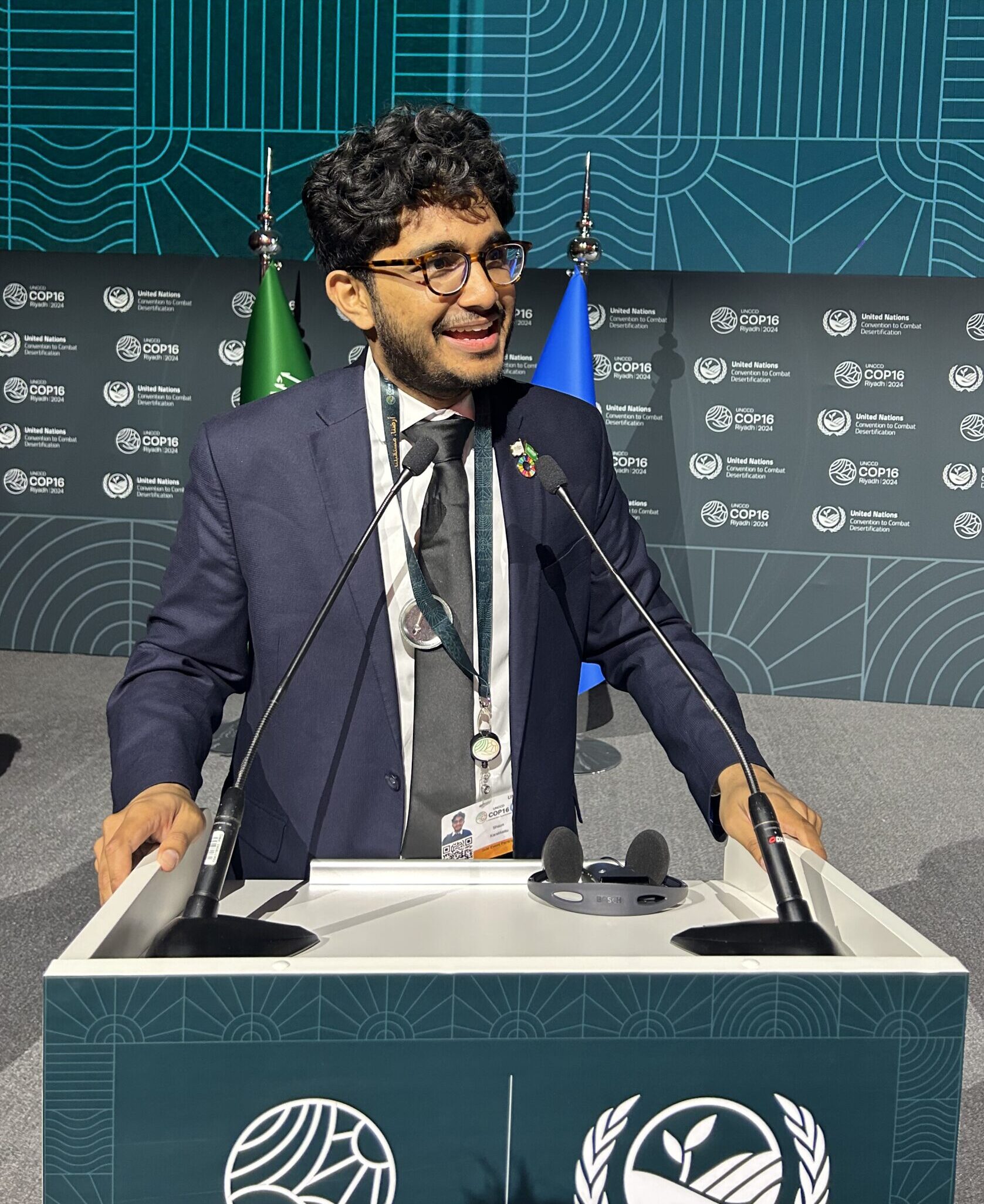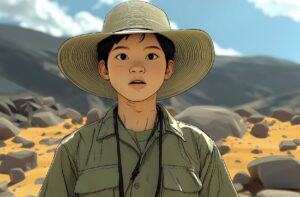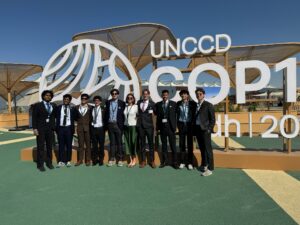AI For Good: How Shaun Karakkattu is using artificial intelligence to democratize the climate change conversation
Shaun Karakkattu is a self-starter. When he’s not working as COO of his start-up and chairman of a nonprofit, Shaun is senior at Vanderbilt University, where he majors in economics and history with a minor in sustainability. A traveler and environmentalist, Shaun aims to make discussions about climate change more accessible to the communities that are most immediately affected, and often uninvited. He is chairman of the board of Tomorrow In Focus, a nonprofit that’s using AI to turn climate initiatives into visual experiences that reach people outside the science world’s echo chamber. 
Shaun was a junior at Mesa High School in Arizona when he discovered SRL on Instagram. Seeing an opportunity to nourish a budding interest in journalism, he applied to SRL’s spring Health Video fellowship in 2020. Shaun worked in a brain tumor research lab in high school and interviewed professors at Harvard and Saint Louis to produce his video story on sex-based differences in brain cancer.
His SRL experience taught him how to get out of the weeds of heady scientific jargon and present information in the most accessible way for his audience. He applies this storytelling lesson to the work he does today.
Shaun attended the United Nations Convention to Combat Desertification, where he began work on his largest production undertaking: the first AI-driven film for the UN. Imagine Land 2040 follows four children from different regions of the world as they confront the environmental degradation ravaging their homelands. They use technology and their imaginations to envision a flourishing future for their communities. These sequences were created using AI image generation. 
After the UN’s G20 Global Land Initiative’s director first had the idea to create an AI film for the UN, Shaun assembled an all-student team and flew to Bonn, Germany to pitch the project. Imagine Land 2040 aims to amplify G20’s mission to halt and reverse land degradation, ultimately reducing degraded land by 50 percent by 2040.
Imagine Land 2040 first screened in early March 2025. Shaun, who executive produced the project, credits the success of the film to his talented cohort of young creators, and encourages other students to find driven collaborators who want to get things moving.
“The biggest thing in this industry is networking. And just taking every opportunity you can, because that’s how this project came to be. Someone had an  idea and we essentially had the grit to make it happen. Find the people that can make it happen.”
idea and we essentially had the grit to make it happen. Find the people that can make it happen.”
Shaun believes that AI can be a tool for positive change. He feels that while AI image generation has a long way to go, it has the potential to democratize the filmmaking process, allowing people to tell their stories without the large cost and exclusivity of traditional media houses.
“I’m a big believer in AI for good,” Shaun explains. “What we do at Tomorrow In Focus is talk about using AI as a way to produce stories that wouldn’t be told otherwise. We want to give people a way to tell their stories, or imagine their country, their landscape, the mission that they’re doing, in a way that they would not have been able to access.”
Accessibility is a major touchstone for Shaun. He describes attending COP 20, the UN’s Climate Change Conference, in Dubai, and observing how locals most impacted by climate degradation were left out of the conversation.
“I have a lot of family out there,” he says. “And it was really interesting because the conference was happening miles from their houses, except they had no idea what was going on. It was like the people that honestly should be the most aware of what was happening even though the conference was in their own community. Sometimes we have large forums of people coming together from all over the world, but the people in the local communities are not included.”
He believes that the conversation around climate change should be brought to people who don’t believe in it or haven’t been taught to understand it. A common challenge in the awareness movement, in his opinion, is delivering good journalism to people who aren’t already part of the conversation. He sees films like Imagine Land 2040 as an opportunity to meet people where they are, and educate through pathos—presenting a visual of a wildfire site and the emotions of the consequences, for example, can be a more effective motivator than describing the scientific processes behind land degradation.
Shaun continues: “Even if people aren’t thinking about things like ‘how does this affect the land, the soil composition or the amount of nitrogen or oxygen in the soil,’ people can see the devastation that occurred there.”
Shaun suggests that scientists and activists focus on being understood by their target audience, rather than get lost in inaccessible jargon. Being understood is at the top of his agenda, harkening back to what he learned five years ago as an SRL fellow. If people aren’t going to the movies for science lessons, then he aims to package the greater message with emotions anyone can understand.
 Tomorrow In Focus has another film project in the works set to be presented at START Summit, Europe’s largest venture capital and startup summit. After graduating, Shaun will be working full time as COO of a startup he founded called Atlog, an AI-based knowledge repository that intuitively organizes users’ files across platforms.
Tomorrow In Focus has another film project in the works set to be presented at START Summit, Europe’s largest venture capital and startup summit. After graduating, Shaun will be working full time as COO of a startup he founded called Atlog, an AI-based knowledge repository that intuitively organizes users’ files across platforms.
Shaun attributes his success to his belief that failure is the greatest learning experience.
“The best thing is to fail often,” he advises. “I think people are really scared about starting something and it not going well. I think I kind of think about it in the opposite way: if I start something and it doesn’t go well, I’ve learned something new in the process.”






